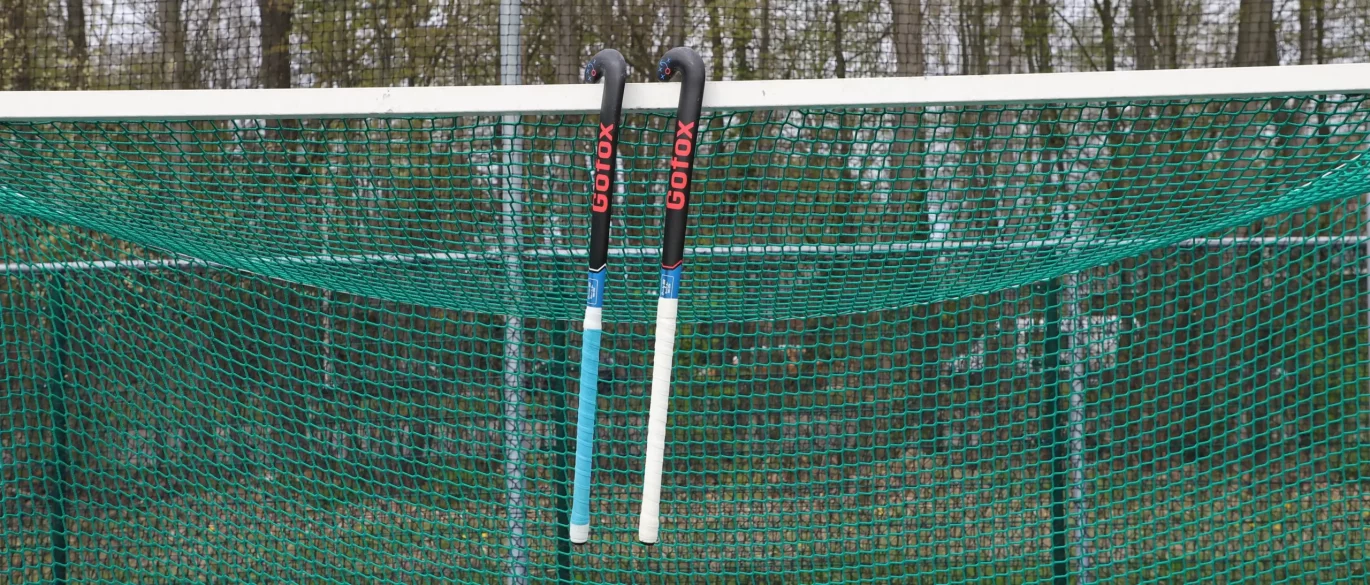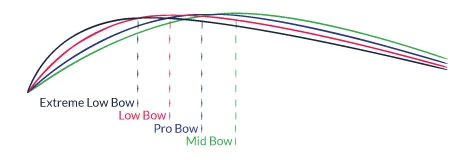How to choose the right field hockey stick
Gofox, 22 May 2023

How to choose your stick and what are the main features ?
Size
The size of the stick is the most important factor when choosing a new stick. For children, the navel technique is used to find the ideal size. For adults, we will opt for sizes above 36.5″.

Bow
The bow of the stick is increasingly taken into account by players when choosing their stick. The Mid Bow, Pro Bow, Low Bow and Extreme Low Bow are the most common bows.

Composition
The composition of hockey sticks has evolved over the years. Today, several materials are used and mixed to develop the sticks. Among the main materials we will find wood, carbon and fibreglass.
Wood
This material is the most used when it comes to children’s sticks. These wooden sticks have a softer, more pleasant feel in the hand and provide good ball control, but at the expense of hitting power. With more experience, children will opt for fiberglass sticks.

Carbon
The higher the carbon content of the stick, the greater the power released into the ball, but with less ball control.
Carbon sticks are more suitable for players with a certain technical mastery. These sticks are recommended for players who want to improve their playing experience while improving their personal skills. The composition of carbon sticks can vary from 25% to 100%, so they are reinforced with other composites such as aramid, kevlar or fiberglass. The 100% carbon sticks are deceptive, with such a high rate, your stick would break in an instant because they would be too fragile.

Fiberglass
Fiberglass sticks are recommended for amateur players who already have experience in hockey and who are looking for an interesting playing sensation, as they offer a higher hitting power than wooden sticks. The composition of fiberglass sticks can vary between 20% and 80%, the sticks will be reinforced with other materials such as carbon or other composites.

Kevlar and aramid
Additional materials in sticks are most often kevlar and aramid. They often complement carbon or fibreglass sticks to give them different characteristics

Weight
For children, the weight of the sticks will vary, but will be between 400g and 500g.
For adults, hockey sticks can be separated into several weight categories, depending on the materials used. It should be noted that there may be differences in weight for sticks of the same model, this is due to the manufacturing methods.
The Ultra-light ones
Their weight is between 510g and 539g. They allow for easier handling, which is ideal for players who like to dribble.
The lightweight ones
Their weight is between 540g and 559g. They are still maneuverable, but with a slightly higher weight, the speed of execution is increased.
The medium ones
Their weight is between 560g and 589g. The sticks are a little less maneuverable, but have a good execution speed and a higher power.
The heavy ones
Their weight is between 590g and 660g. The heavy sticks have a slower speed, but offer a better resistance to shocks.
The grip
Hockey sticks are added by manufacturers of a basic polyurethane grip. On top of this, most players like to add a second grip (called an overgrip) made of foam or chamois.
Polyurethane foam overgrips provide a soft feeling and help absorb stick vibrations. Chamois overgrips provide the same characteristics while better absorbing perspiration and moisture.
Now, all the curvatures have no secrets anymore for you! All you have to do is discover the other important features of a stick!
